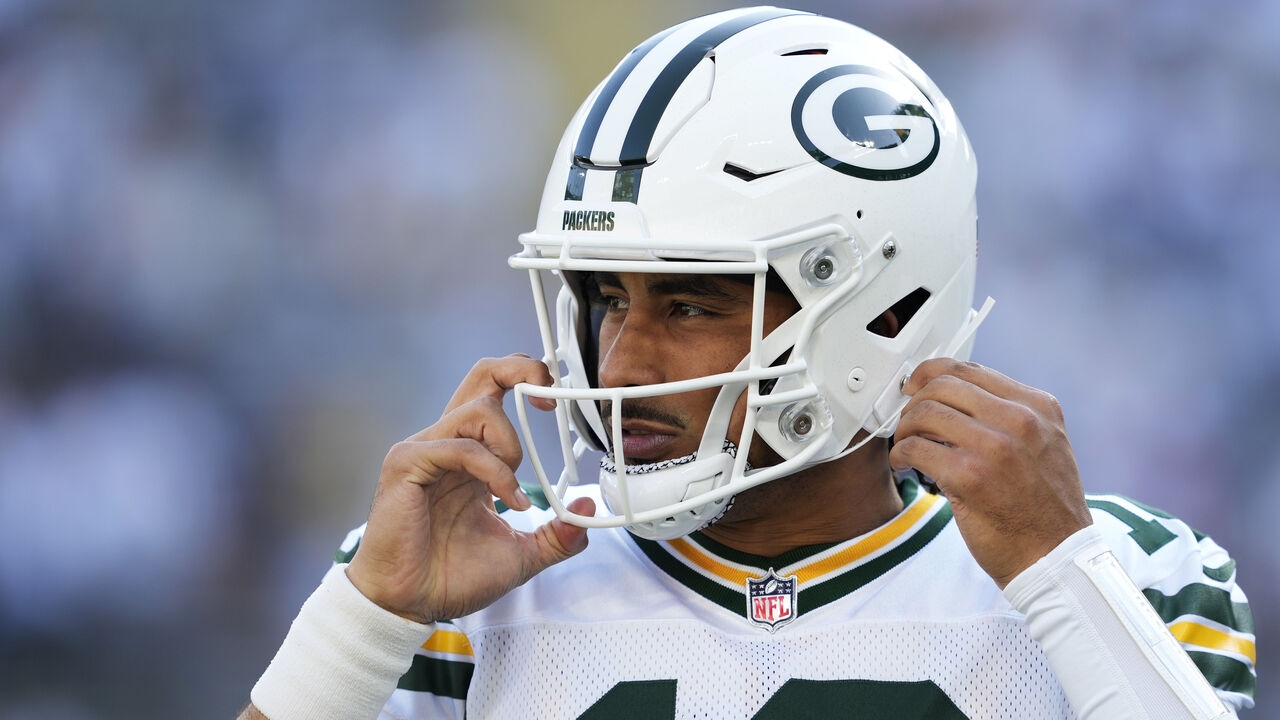The very expensive problem of QB contracts
Imagine if three of the highest annual salaries in the NBA went to Cam Thomas, LaMelo Ball, and Trae Young.
They're fine players who can fill a stat sheet, sure, but they're not on anyone's list of best players in the league. It would be odd if they carried the biggest tickets, yes?
But that kind of incongruity is normal business in the NFL. Three of the four highest-paid players in the league by annual salary are Dak Prescott, Trevor Lawrence, and Jordan Love. No. 5 is Tua Tagovailoa.
Patrick Mahomes, undoubtedly the best player in the world, is 12th, tied with Kirk Cousins, while Josh Allen, a potential MVP candidate, is 14th.
It goes without saying that the Kansas City Chiefs don't consider Mahomes to be the 12th-best player in the league, and the Buffalo Bills certainly didn't give Allen an insulting deal. These contracts are instead a product of several factors, the biggest of them being that Mahomes and Allen signed their mega-deals before the NFL's salary cap grew significantly in the seasons after 2021. The secret to being the highest-paid quarterback in the NFL is to be the most recent quarterback to sign a long-term deal.
The NFL's modern economy forces teams to confront some uncomfortable truths, the main one being that you have to pay your quarterback. If you have a starter who seems competent enough to get you to the playoffs, that's your guy. Good quarterbacks are scarce, so it's highly unlikely that a better alternative will fall into your lap. Relatedly, if your quarterback is nearing the end of his rookie deal and you aren't entirely confident that he's a game-changing superstar, you will have to pay him like one anyway.
That's where it can, and has, become awkward in a hurry for some of the league's most recent mega-contract winners.
Prescott has piled up gaudy passing statistics but has been unable to follow that up with playoff success in Dallas, which helps explain why Cowboys owner and GM Jerry Jones kept avoiding another long-term contract offer. Of course, Jones eventually caved to avoid the risk of losing his quarterback to free agency at the end of this season. It worked out great for Prescott, who now holds a $60-million-per-year deal. The Cowboys, meanwhile, are 3-5, and Prescott's numbers are sharply below his career averages. The only good news is that he's unlikely to have a playoff embarrassment since Dallas probably won't get there.
Then there's Lawrence, who hasn't suffered a drop-off in his play after signing his $55-million-per-year deal in Jacksonville but doesn't look anywhere close to being one of the league's top quarterbacks. The 2-7 Jaguars look like a team that paid Lawrence because he was the first overall draft pick in 2021. They didn't want to deal with the hassle of starting a search for a franchise guy all over again. Fair enough. But once you've made the commitment, you better hope it works out. The Jaguars are definitely still at the hope stage with Lawrence.

Even in Green Bay, where Love was given all the flowers for a dazzling second half of last season - his first campaign as a starter after two years on the bench - there has to be a little trepidation about the $55-million-a-year man. Love is leading the NFL in interceptions, with 10 in seven games, and in sack rate. The Packers are 6-3 and have a good chance at a playoff berth in a tough division, but Love isn't getting paid to be decent. He's getting paid to be excellent.
Drafting a quarterback is no longer just a lottery in which teams hope to hit on a winner in April based on limited information. It's a series of lotteries in which some teams are hoping to get lucky while also giving the player they selected four years ago a $250-million contract.
A front office might still be uncertain about its quarterback toward the end of his rookie contract, especially if the player stepped into a poor situation (hello, Bryce Young) or if his play wasn't spectacular (hello, Bo Nix.) Then there are players who get hurt, benched, or both, leaving the team nowhere closer to knowing if its guy can be an NFL starter (hello, Anthony Richardson).
The clock is already ticking on those guys. Every week that passes gets their team that much closer to having to make a franchise-defining decision about the quarterback it drafted in the first round.
And the college stars who haven't even been drafted yet? Imagine what they're going to make when it comes time to sign their second contract in a league where the salary cap could be well over $300 million.
Scott Stinson is a contributing writer for theScore.
HEADLINES
- NFL Week 16 Prop Party: How to back Prescott in crucial game
- Injured Adams likely to remain sidelined vs. Falcons
- Kelce ready to give 'everything I got' in potentially final 3 games of career
- Week 16 anytime TD bets: Metcalf highlights 5 value picks
- Tua's time is up. Now the hard part starts for the Dolphins